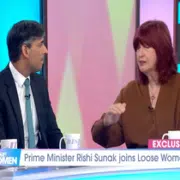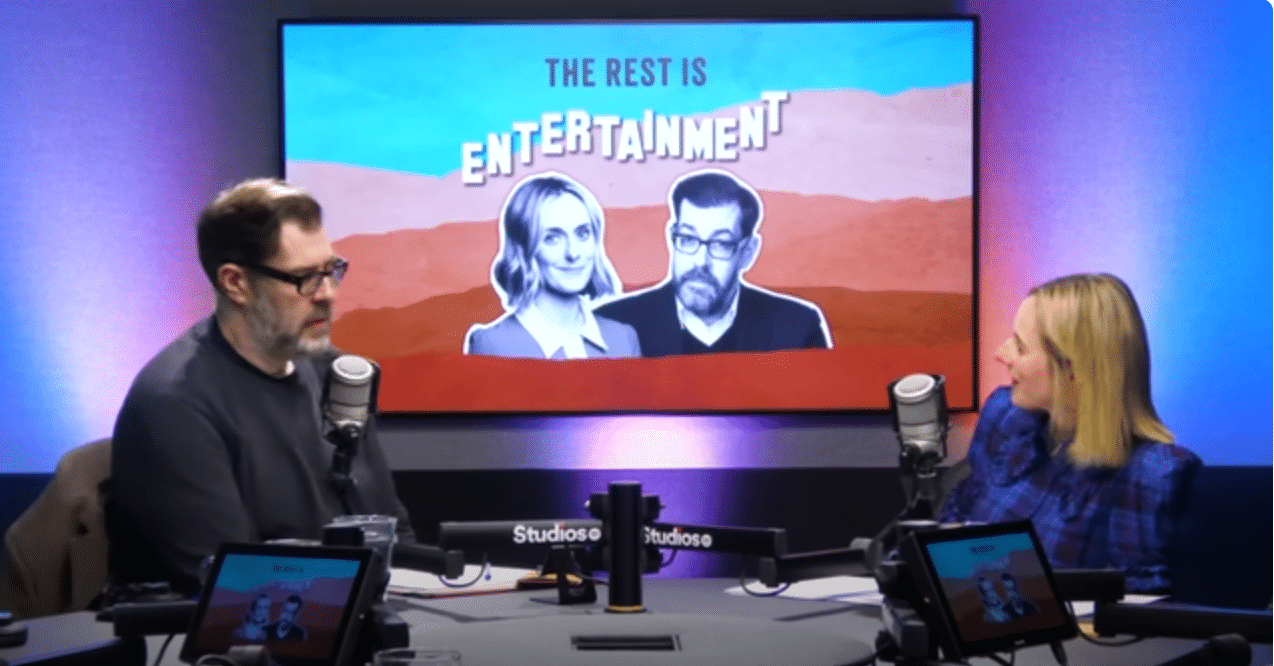Politics as Entertainment
For weeks now, politicians of all colours have been appearing on the big TV debates, ready to be interrogated in depth by the serious news interviewers out there – such as Laura Kuenssberg, Nick Robinson, and Julie Etchingham.
These programmes are a regular part of the build-up to a General Election, and politicians prepare for them rigorously, knowing that every word is being examined, scrutinised and analysed by newsrooms around the country (and sometimes the world), eager for a headline.
But there’s one type of arena in which politicians have to perform which is arguably even more difficult for them – and that’s the ‘soft’ TV entertainment show like BBC1’s The One Show, ITV’s Loose Women and Channel 4’s Sunday Brunch.
The reason it’s so tricky?
Because whilst professional politicians may feel at home in a challenging debate which feels similar to the environment of the House of Commons, they feel much less comfortable on a show where politics is rarely discussed. They know that in these appearances, the audience is used to a different diet of topics, and somehow they have to present their ‘real’ selves (whatever that may mean) in an authentic way.
This is a subject which came under discussion in a recent edition of the excellent podcast ‘The Rest Is Entertainment’, hosted by author and broadcaster Richard Osman and journalist Marina Hyde.
As Marina Hyde puts it, politicians realise “that kind of soft exposure can be as helpful, if not, more helpful, than hard news exposure – particularly now that mainstream news has been abandoned by so many people”.
In other words, in some respects, entertainment TV has become even more important during an election because it has an audience of people who do not normally care about the news or politics suddenly wanting to know what various politicians are really like.
Richard Osman agrees, saying “Elections are for politics what Wimbledon is for tennis. Literally, 85% of the population doesn’t care at all about politics… not because they’re idiots or anything; it’s not the thing that rings their bell… in the same way that most people are not interested in tennis, until suddenly Sue Barker pops up”.
But the problem is, the experience of being on an entertainment talk show feels like a “bear trap” where they are suddenly the “amateurs” rather than the “professional politicians” in the room. This ‘softer’ choice of outlet has form: Margaret Thatcher on Radio 2’s ‘Jimmy Young Show’ in 1975; Bill Clinton on Arsenio Hall’s TV show in 1992.
It’s a tricky balancing act – showing yourself to be interesting enough (or at least not boring, which is not quite the same thing), to justify your appearance on the comfy sofa, but not to be seduced into saying something so odd it becomes a negative headline. Think of Teresa May’s ‘naughtiest’ memory being ‘running through fields of wheat’, when interviewed in 2017.
“If you’re a man and you go on Loose Women”, adds Marina Hyde, “you have to say: ‘this is my scariest interview’… It’s electoral law. You have to say: ‘I’m terrified of this one’”. And with good reason. The curveball question to Rishi Sunak “Why do you hate pensioners?” on that very same programme was clearly not something he was expecting.
As Richard Osman explains, unlike entertainment guests, “politicians have no freedom to do or say anything… They’ve got their party lines. And that doesn’t work if you’re going up against Judi Love and Janet Street-Porter… It’s not the rhythm of the conversation that you need to have.”
All of this means that this type of interview can become the most difficult politicians are likely to encounter. Suddenly, they are fishes out of water and they no longer know the rules. “Everyone I know who would be good on The One Show would be a bad Prime Minister,” says Richard Osman. “I don’t think you can do both; you have to choose.”
It’s a bit like the ‘funny’ question which used to appear at the end of every edition of Question Time. During their preparation for the show, politicians would spend a surprising amount of their time obsessing about the nature of the enquiry, and what the correct response would be.
“The issue that these politicians have:” explains Richard Osman, “they’ve grown up in an environment where every single show they go on is pretty much the same – and also goes out to pretty much the same audience… You’ve got this ridiculous dance – of something where it’s not a real interview. They know their line of attack; he knows his line of defence – and everyone who’s watching has made their mind up already, anyway. And that is so much of political broadcasting over the last 20 or 30 years: it’s a dance that everyone knows the moves to.”
But away from this environment, in programmes where entertainment guests are usually booked, the steps have changed. The dance becomes much more free form. Policy gives way to personality; charisma and authenticity are suddenly what the judges are looking for.
It could be argued that as neither Sunak nor Starmer are ‘natural’ TV performers, the reaction of viewers to their respective appearances is ‘fair’ – even if, in real life, they are both much more personable.
What we can say for sure is that whoever wins in the polls on Thursday, you can guarantee that the victor will not only have coped with the serious TV debates, but – just as importantly – will also have managed to handle the ‘soft’ entertainment shows too.
- Introducing the ‘Act Out’: - October 29, 2024
- Politics as Entertainment - July 2, 2024
- All Presenters Need a Critical Friend - April 23, 2024






Leave a Reply
Want to join the discussion?Feel free to contribute!